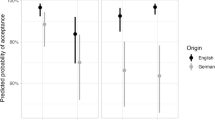Abstract
THE main ground of my criticism of Dr. Sampson's book was that in it he pays little regard to the principle of the constancy of sound-laws. In his reply, however, he professes his adherence to this principle; and proceeds forthwith to deny it. For by this method, he says, he arrived at the new conclusion, among others, that bār, ‘stone’, is derived from Sanskrit vata. It is true that initial v- regularly becomes b, and that intervocalic -t- regularly becomes r. So far, so good. But it is a well-established law that in European Romani Skt. &acaron; followed by one consonant only becomes e, as appears to be admitted by Dr. Sampson on p. 44 of his book. Therefore if br is to be derived from vata, a special explanation of the presence of (instead of e) is required: Dr. Sampson offers none, nor even indicates the need. He has already betrayed the principle of the constancy of sound laws. Actually this word is derived from a Middle Indian *vatta- (cf. Pali vatto, round, rolling), common in the N.W. languages, e.g. Panjabi wattā, which Khowar bǒrt shows to be from earlier varta-.
This is a preview of subscription content, access via your institution
Access options
Subscribe to this journal
Receive 51 print issues and online access
$199.00 per year
only $3.90 per issue
Buy this article
- Purchase on Springer Link
- Instant access to full article PDF
Prices may be subject to local taxes which are calculated during checkout
Similar content being viewed by others
Rights and permissions
About this article
Cite this article
TURNER, R. Welsh Romani. Nature 118, 657–658 (1926). https://doi.org/10.1038/118657b0
Issue Date:
DOI: https://doi.org/10.1038/118657b0
Comments
By submitting a comment you agree to abide by our Terms and Community Guidelines. If you find something abusive or that does not comply with our terms or guidelines please flag it as inappropriate.



